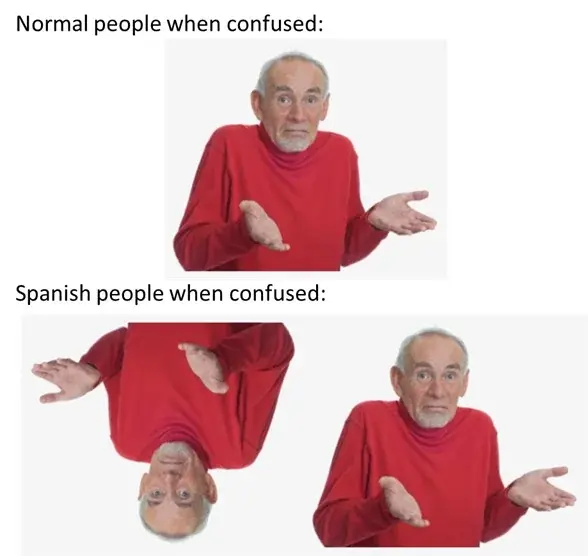this post was submitted on 05 Nov 2023
1523 points (98.4% liked)
Memes
46009 readers
3663 users here now
Rules:
- Be civil and nice.
- Try not to excessively repost, as a rule of thumb, wait at least 2 months to do it if you have to.
founded 5 years ago
MODERATORS
you are viewing a single comment's thread
view the rest of the comments
view the rest of the comments

Can you give me an example?
Edit: Ok thanks guys, I got it :D
Maybe
but taken to the extreme?
Hij schreef een bericht. (He wrote a message)
Schreef hij een bericht? (Did he wrote a message?)
Zeg eens, waarom wil je zo graag met een CEO slapen?
Fuck Spez daarom
I know you already got it but a few others came to my mind:
Finnish, which not a tonal language:
Japanese:
I think you'll find the pattern of question words/suffixes in nearly every language that is not explicitly tonal.
Yeah that's initially why I thought there was no difference to Spanish. But the difference is Spanish actually doesn't have an option where you switch subject and verb. Didn't know that :)
Oh. Very good point. I did not know that either.